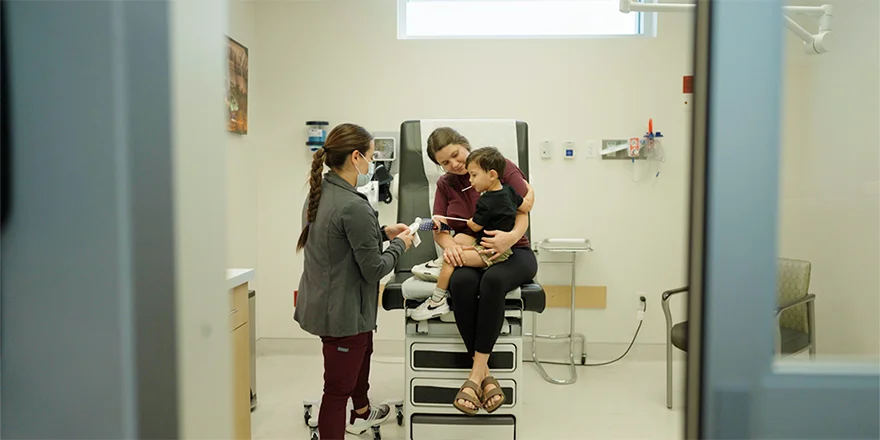In a nursing home, providing top-notch care goes beyond just addressing a resident’s physical needs. It requires a coordinated, holistic approach to health that considers mental, emotional, and social well-being. That’s where the integrated team approach comes into play—bringing together a range of healthcare professionals to work collaboratively in the best interest of each resident.
While each healthcare professional in a nursing home has their area of expertise, an integrated team approach means they work together seamlessly, ensuring that care is continuous, personalized, and comprehensive. Let’s explore why this approach is absolutely essential in nursing home settings.
1. Comprehensive Care: Because One Size Doesn’t Fit All
Each nursing home resident comes with their own set of health challenges. Some may have chronic illnesses like diabetes or heart disease. Others might experience cognitive decline, such as dementia or Alzheimer’s disease. Whatever the case may be, no single healthcare provider can cover all the bases.
An integrated team approach ensures that every aspect of a resident’s health is taken into account. This means that doctors, nurses, pharmacists, social workers, dietitians, physical therapists, and mental health professionals all contribute their unique expertise to create a well-rounded care plan.
For example, a resident with diabetes might benefit from medical management by their physician, dietary adjustments from a dietitian, mobility support from a physical therapist, and emotional support from a counselor or social worker. Without this integration, important aspects of care could fall through the cracks.
2. Fewer Gaps, Fewer Errors: Better Communication for Better Outcomes
In a nursing home, where many residents have multiple health conditions and complex medication regimens, miscommunication can be a recipe for disaster. Disjointed care between specialists can lead to medication errors, conflicting advice, or missed diagnoses. The beauty of an integrated team is that everyone is on the same page.
Physicians can communicate directly with nurses about changes in medication, physical therapists can update doctors on a resident’s mobility progress, and social workers can share any emotional concerns they observe. When all team members are working in sync, care becomes more efficient, accurate, and effective. This not only prevents errors but also leads to faster, more responsive treatment.
3. Holistic Health: Addressing the Mind, Body, and Spirit
Nursing home residents are individuals with more than just physical health needs. Many residents also face challenges with mental health—depression, anxiety, and cognitive disorders can significantly affect quality of life.
With an integrated team, mental health professionals like therapists or psychologists can work alongside physical health specialists to address the whole person. For instance, if a resident with dementia is exhibiting signs of depression, a counselor can work with the nursing team to adjust medication or activities that may help improve their mood. Social workers can also assess a resident’s social needs and help facilitate group activities that encourage engagement, ultimately enhancing the resident’s mental and emotional well-being.
By addressing the mental, emotional, and physical needs of each resident, the integrated team ensures that no part of a resident’s well-being is neglected.
4. Personalized Care Plans: Tailored to Each Resident’s Needs
When each member of the healthcare team works closely together, it becomes much easier to create personalized care plans that cater to the unique needs of each resident. From diet and exercise to social interaction and spiritual care, every aspect of a resident’s life is considered in crafting a plan that is as individualized as possible.
Consider a resident recovering from surgery. They may need physical therapy for mobility, nutritional counseling to aid healing, emotional support to cope with the stress of recovery, and regular medical check-ups to monitor any underlying conditions. An integrated team can ensure these needs are met and adjusted as recovery progresses.
Tailoring care in this way improves outcomes, enhances quality of life, and helps residents feel truly cared for.
5. Improved Family Communication and Peace of Mind
Families of nursing home residents often feel a sense of anxiety and helplessness, particularly when it comes to navigating the complex world of healthcare for their loved ones. An integrated team can serve as a reassuring source of support for family members by providing consistent updates on a resident’s health status and discussing their treatment plans in clear, understandable terms.
For example, a family member may have concerns about a loved one’s medication side effects. If the family is in regular communication with both the physician and the pharmacist, they can gain a comprehensive understanding of the medication regimen and potential adjustments. This helps to build trust and alleviate concerns, ensuring families feel confident in the care their loved one is receiving.
6. Proactive, Preventive Care: Anticipating Needs Before They Arise
One of the biggest benefits of the integrated team approach is the ability to be proactive rather than reactive. By sharing information and monitoring residents’ health closely, the team can anticipate potential issues before they become serious.
For example, if a nurse notices a resident is becoming more forgetful, the team can flag this early on and begin monitoring for signs of cognitive decline. A physician might adjust medications, a social worker could provide additional mental stimulation, and a physical therapist could help maintain physical abilities to slow the progression of any cognitive impairments. The goal is to catch issues early and prevent them from escalating into more severe conditions.
7. A Better Work Environment: Boosting Staff Morale and Collaboration
When healthcare professionals feel supported by their colleagues, it enhances job satisfaction and reduces burnout. Working in an integrated team fosters a sense of camaraderie and shared purpose. This collaborative approach helps to improve staff morale, making it easier to provide the highest level of care possible. Nurses can work more efficiently with support from physical therapists and dietitians, while social workers can focus on improving residents’ emotional well-being with a clear understanding of the medical context.
Staff who work well together are more likely to stay in their roles, improving continuity of care for residents and leading to better overall outcomes.
In Conclusion: Teamwork Makes the Dream Work
In the nursing home setting, providing comprehensive, personalized care requires more than just individual expertise—it requires collaboration. An integrated team approach ensures that every aspect of a resident’s health is addressed in a coordinated way. By working together, healthcare professionals can provide residents with the best possible care, anticipate needs before they become problems, and support families throughout the process.
At the end of the day, it’s the residents who benefit most from this teamwork, experiencing improved outcomes, greater comfort, and a higher quality of life. After all, it takes a village—or in this case, a team—to help residents live their best lives in their later years.
At Xpress Wellness, we use an integrated value based care model to help patients reach the best version of themselves while living in a facility. Whether this is a transitional move or a permanent residence we view it as an honor to take care of your loved one.



